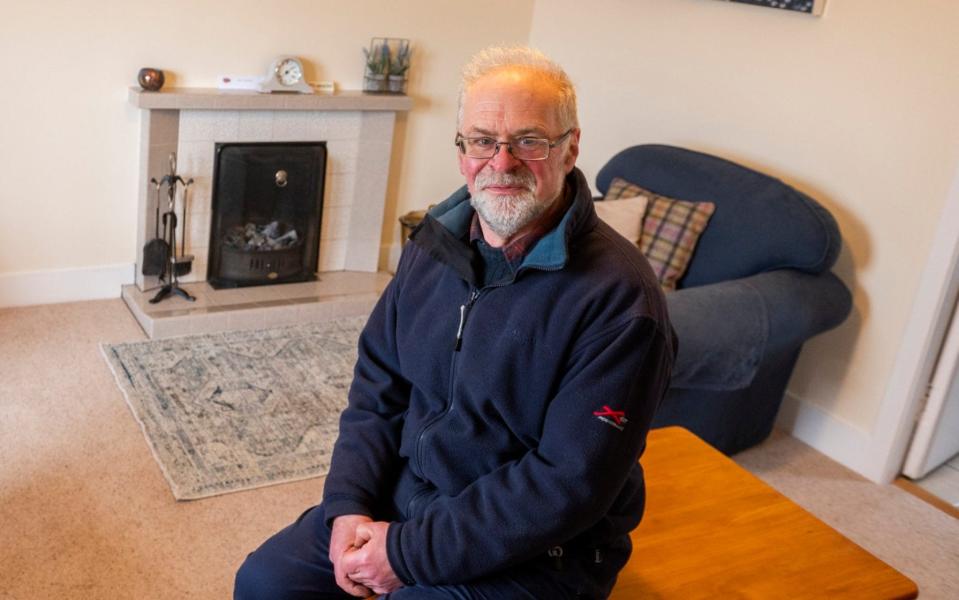Scottish holiday owners feel they can’t catch a break. A new licensing system and the possibility of losing mortgage interest relief means higher costs for everyone – and tourism is suffering.
The businesses that made it through the pandemic were rewarded with an influx of visitors as restrictions were lifted. However, due to the impact of higher interest rates and inflation on the spending power of households, the numbers are declining.
Spending on short-term letting was worth £3.8bn to the Scottish economy in 2021, according to research by Oxford Economics commissioned by Sykes Holiday Cottages, and supported 65,000 jobs.
It’s a time when many people expect governments – in Holyrood and Westminster – to look at what they can do to help.
However, areas of regulation make it more difficult for vacation rental owners to make a profit.
Last year the Scottish government introduced a licensing regime for the sector.


From October 2023, all short-term lettings, including self-catering accommodation and Bed and Breakfasts, must hold a license to take bookings and receive guests. These are granted by the local authority who are allowed to set their own prices for the permits.
The average three-year license application fee varies from around £260 for a double room to up to £520 for a short-term rental home with a maximum occupancy of 10, according to official government figures.
This works out as an annual average of between £90 and £170 for these types of short term leases. However, these vary based on location.
In addition, councils have been given the power to designate “control areas” where there is a particularly high concentration of rental properties. If a property is within a controlled area you need planning permission from the council to change its use.
This means property owners could be prevented from expanding or starting a holiday letting business if the council feels there are already too many in the local area.
Edinburgh became the first designated short-term letting control area in Scotland in September 2022.
The total number of licensing applications is around 26,000 according to a Freedom of Information request submitted by the Scottish Self-Caterers Association in January.
It is below the 32,000 previously estimated by the Scottish government.
Furthermore, according to the Scottish Association of Assessors, the number of self-catering units across Scotland at non-household rates has fallen to just over 17,000 by April 2024. In Edinburgh, the number has fallen by 16pc in 11 months down
Fiona Campbell, chief executive of the Association of Scotland’s Self-Caterers, said: “The fact that so few licenses have been granted shows how overburdened local authorities are and they are asking local authorities to make planning considerations. It’s an absolute nightmare.”
Current hosts who applied before 1 October 2023 can continue to operate while their application is being processed, the Scottish government has confirmed.
Councils have up to 12 months to process these applications during the current transition period, which provides an additional three months to allow hosts to clarify their planning status if this has not already been established.
“In Scotland we had a whole licensing regime that came in which was difficult and it’s a postcode lottery,” says David Smythe MBE, owner of Cloag Farm Cottages in Perthshire.
Smythe, 66, says some holiday letting owners have left the sector because it is “too difficult”.


For those who wish to continue there is also an element of uncertainty.
Andy Fenner, chief executive of the Short Term Accommodation Association, said: “We’ve got a holding pattern at the moment because we’ve got that situation where people have applied for the licenses and we’ve got the 12-month window to see if it’s there. they got it or they didn’t.”
Fenner agrees that business owners will leave the sector as a result of the change and that the regulation is misleading.
“We’re talking about a couple down the road who have been renting out a house for years and years and it’s now called Airbnb. The cost will be passed on to the consumer and families wanting to go on holiday.”
The feeling across the sector, he says, is that tourism from overseas is slowing due to rising costs.
Now owners face even greater restrictions on their businesses.
In the Budget, Chancellor Jeremy Hunt announced the end of preferential treatment for furnished holiday lets (FHLs).
FHL owners currently enjoy a more favorable tax regime than long-term rental property owners, including mortgage interest relief which allows borrowers to offset their interest payments against their profits. Landlords enjoyed the same relief but can now only claim up to 20pc.
Income from holiday letting is classed as relevant net earnings for pension purposes, allowing you to make tax-advantaged pension contributions.
However, these allowances are due to be withdrawn, leaving owners of short-term lets £1,693 worse off on average, according to figures from Quilter based on an average house price in Scotland and a rental income of £13,500.
Smythe says that for those with mortgages, it will affect the investment they can put into their property and while it may not cause owners to sell in and of themselves, it will make it more difficult to end to add.
The explanation given by the Government is that the changes to the housing supply for long-term rental properties will increase, pushing down prices for tenants and reducing pressure on the system.
However, Campbell says this is not the case and instead the policy risks creating more second home owners who do not bring the same tourism and income to local areas.
“If you have a second home the socially responsible thing is to rent it out when you’re not using it.
“But they’re discouraging people from doing that because of all the changes. We will have many more second homes which will leave the communities out.
“Those are the lights that don’t come on in the winter but do in self-catering properties. This will close viable businesses and destroy people’s pensions.”
It’s not just business owners who will suffer, but also those who rely on tourism to support their own incomes such as pub owners, gardeners and cleaners, says Campbell.
Recommended
Why owning a second home is not worth it
Read more
Although the increased taxes on second homes are intended to discourage owners, Campbell argues that many will pay them and leave their properties empty.
“These regulations are failing all parts of our communities, benefiting no one. It is time for a rethink and for industry and government to work together to reform the regulatory framework for the benefit of all stakeholders,” added Campbell.
In addition, in an effort to limit second homes, the Government announced the introduction of a short-term letting program and a requirement for planning permission for any property let for 90 days or more a year.
However, critics say this will only be a loophole allowing landlords to rent out their properties at peak times and leave them empty when there is a lull.
“Now is the booking window for summer holidays and we need to start shouting that Scotland is open for business,” says Fenner.
“Tourism creates wealth across rural areas, and drives jobs and investment. The Scottish government should welcome platforms such as Booking.com, Airbnb and Sykes Cottages with open arms.”
A Scottish government spokesman said: “The introduction of licensing protects the important role that short-term rental accommodation plays in our economy by giving guests assurance of safety and quality, such as compliance with gas certificates and the suitability of electrical equipment.
“Licensing authorities work with relevant bodies, such as planning authorities, to ensure that hosts/operators have met the relevant legal requirements and to ensure that the accommodation can be used as short-term letting.
“The specific statutory requirement to grant planning permission for material changes of use is not new, it has been the legal position for many years and pre-licensing.”

